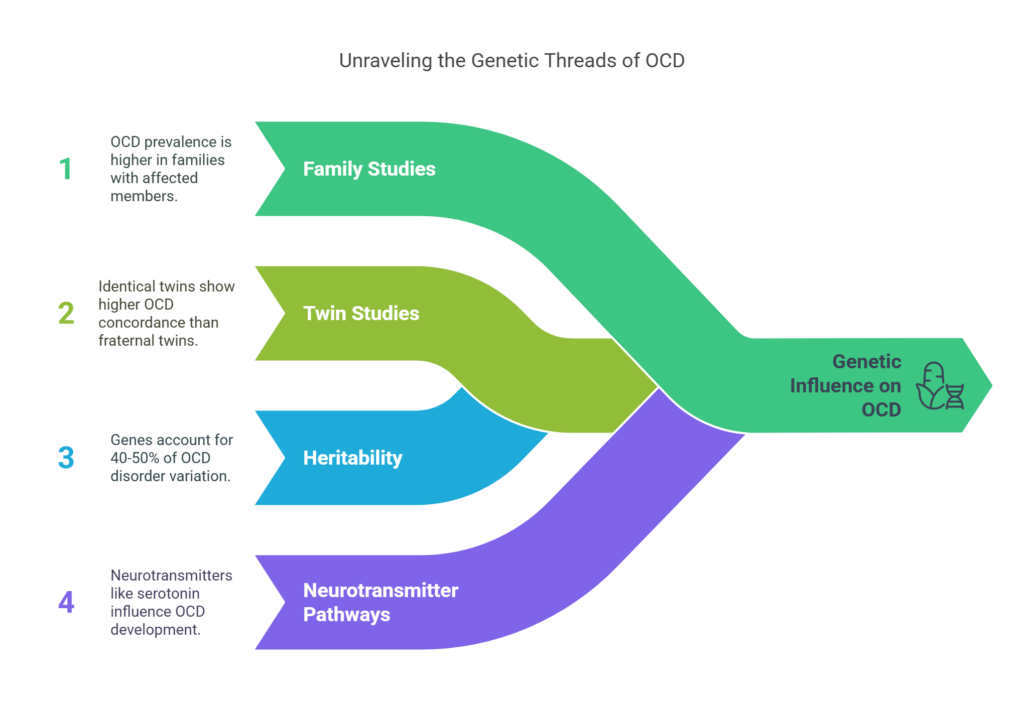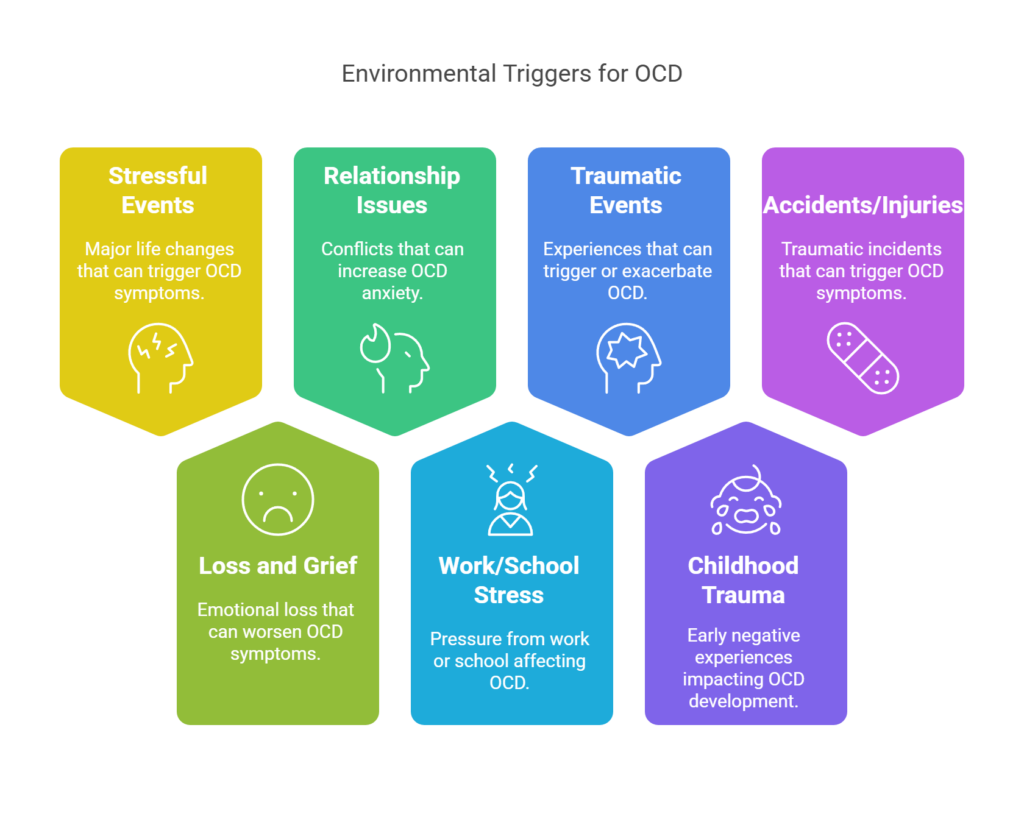Struggling with obsessive-compulsive disorder (OCD) can feel exhausting. The racing thoughts, the uncontrollable rituals, the overwhelming need for things to be “just right”—it can take over your life. If you’ve been battling these symptoms or watching a loved one suffer, you might be wondering: “Is OCD hereditary?”
At Relevance Recovery, we know how isolating OCD can feel, but you don’t have to go through it alone. Whether OCD runs in your family or has developed due to other factors, the good news is that help is available. Our specialized treatment programs provide a comprehensive path to healing, addressing not only OCD but also co-occurring challenges like substance abuse and anxiety. If you or a loved one is struggling, now is the time to take action; we are here to support you.
Before diving into whether “Is OCD hereditary”, it’s important to understand what OCD really is. OCD is a mental health disorder that causes intrusive thoughts (obsessions) and compulsive behaviors (repetitive actions performed to relieve anxiety). These behaviors can interfere with daily life, making it difficult to focus on work, relationships, and personal well-being.
When OCD is left untreated, it can take control of a person’s life. Some of the most common signs include:
If you or someone you love is experiencing these symptoms, it’s important to know that OCD is treatable. At Relevance Recovery, we provide evidence-based therapies that help break the cycle of OCD and restore balance to your life.
A common question we hear is, “Is OCD hereditary?” The answer is yes, genetics can play a role, but they are not the only factor. Having a parent or sibling with OCD may increase the likelihood of developing the disorder, but environmental and neurological factors also contribute.

Before listing the factors, it’s important to understand that while “Is OCD hereditary?”, it is not solely determined by genetics. Other influences can trigger or worsen symptoms.
However, even if “Is OCD hereditary?”, that doesn’t mean it’s unavoidable. With the right treatment, symptoms can be managed, and a healthy, fulfilling life is possible.
Genetics may increase the risk of OCD, but external factors also play a big role in whether symptoms develop or worsen.

If you or a loved one is struggling with OCD and substance abuse, professional treatment is essential. At Relevance Recovery, we offer dual-diagnosis treatment that addresses both conditions, ensuring you get the care you need for long-term recovery.
For many people, OCD can lead to self-medicating with drugs or alcohol in an attempt to ease anxiety. Unfortunately, substance use can worsen OCD symptoms and create a dangerous cycle of addiction.
At Relevance Recovery, we understand the unique challenges of OCD and co-occurring disorders. That’s why our programs offer:
If you or a loved one is struggling, seeking help now can prevent symptoms from getting worse.
The good news is that OCD is treatable, even if it runs in your family. At Relevance Recovery, we offer a range of evidence-based treatments to help you regain control.
At Relevance Recovery, we create personalized treatment plans that address your specific needs, helping you reclaim your life.
If “Is OCD hereditary?”, it does not mean you are destined to suffer. Treatment works, and we are here to guide you every step of the way. At Relevance Recovery, we provide:
You don’t have to let OCD or substance abuse control your life. Recovery is possible, and we’re here to help you get there.
While “Is OCD hereditary?”, it does not have to define your future. If you’ve been struggling with overwhelming thoughts, compulsive behaviors, or even substance use as a way to cope, now is the time to take control. You deserve a life free from the weight of OCD, and with the right support, recovery is possible.
At Relevance Recovery, we offer personalized treatment plans, expert care, and a compassionate environment to help you heal. Whether you need help for OCD, substance abuse, or both, our team is ready to walk with you every step of the way.
Don’t wait for OCD to take over your life. Take the first step toward healing today. Call Relevance Recovery now and start your journey to a better, healthier future.
FAQs
OCD can be inherited from either parent. Genetics play a role, but environmental factors also contribute. If a parent has OCD, their child may have a higher risk, but it’s not guaranteed they will develop the disorder.
OCD can have genetic roots, but it often develops due to environmental, neurological, or psychological factors. Some people show symptoms early in childhood, while others develop OCD later due to stress, trauma, or imbalances in brain chemistry.
OCD cannot be completely cured, but it can be effectively managed with treatment. Therapy, medication, and lifestyle changes help reduce symptoms. With proper support, individuals with OCD can lead fulfilling lives without their symptoms dominating daily activities.
Processed foods, caffeine, and sugar can worsen OCD symptoms by increasing anxiety. Artificial additives, alcohol, and gluten (for sensitive individuals) may also contribute to compulsions and intrusive thoughts. A balanced diet rich in whole foods can help stabilize mood.
No, OCD and autism are separate conditions, but they can coexist. OCD is an anxiety disorder involving obsessions and compulsions, while autism is a neurodevelopmental condition affecting social skills, communication, and behavior. However, both can involve repetitive behaviors.
OCD does not directly affect life expectancy, but severe cases can impact physical and mental health. If untreated, it may lead to stress-related illnesses or substance abuse. With proper treatment, individuals with OCD can live long, healthy lives.